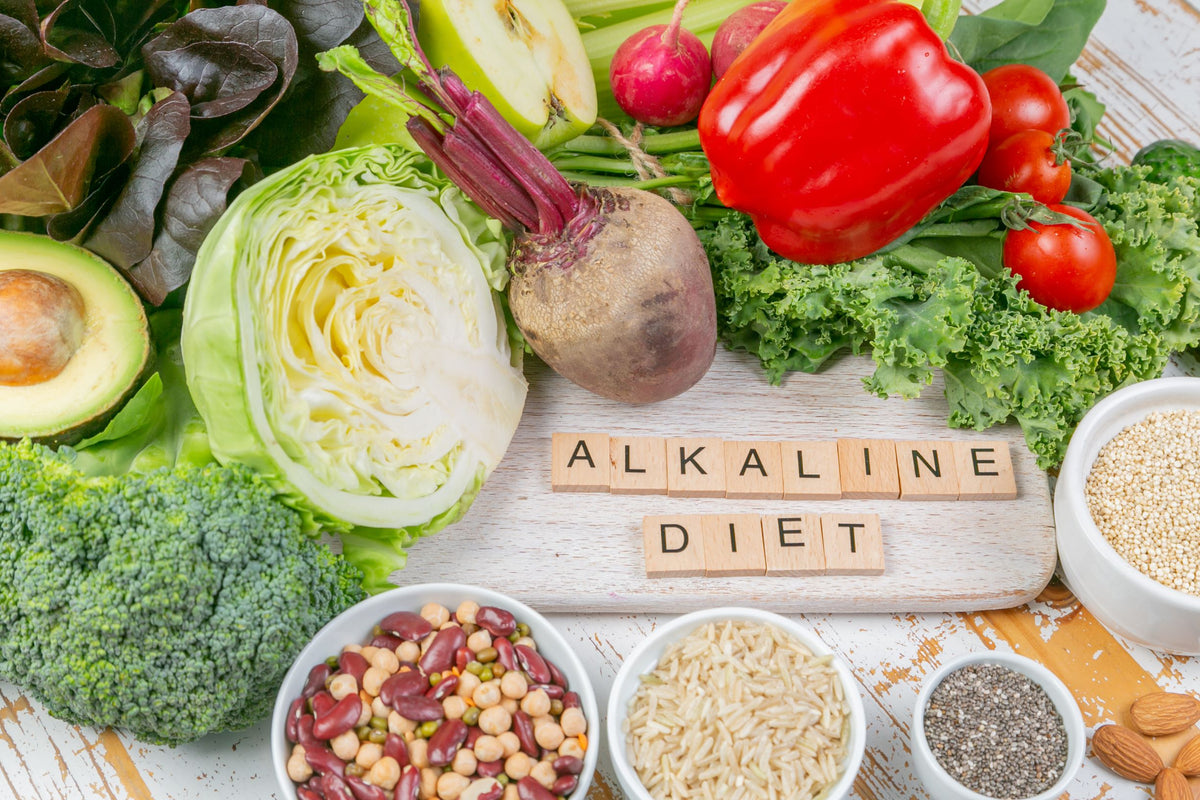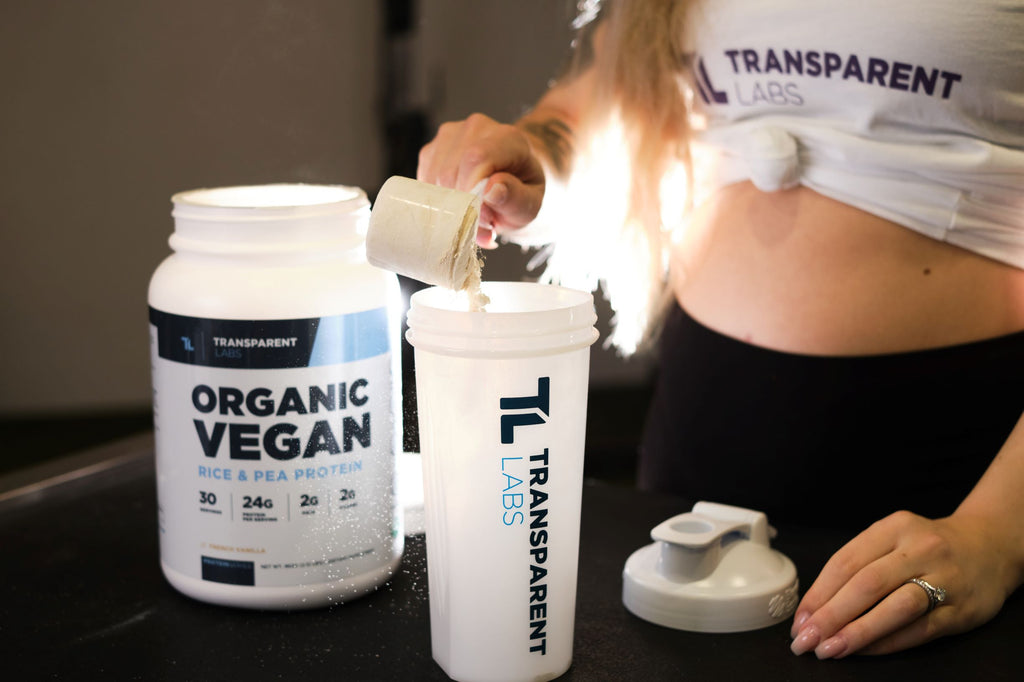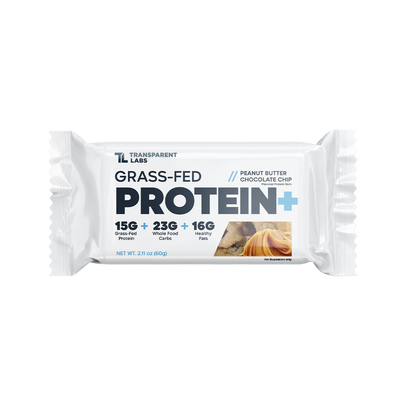Is an Alkaline Diet Backed By Research? Myths vs. Scientific Evidence

Alkaline Diet Claims: Does Research Justify Reducing Acid Load?
It goes without saying that more acidic/acid-forming foods, especially refined sugar, processed flours, red meat, and alcohol, tend to be less healthful than alkaline foods like cruciferous vegetables, plant-based proteins, egg whites, nuts/seeds, and whole grains. However, acidic foods aren't inherently "bad" — many fruits and vegetables are acid-forming, as are legumes, seafood, and fermented low-fat dairy products.
People on an alkaline diet abide by the tenet that the acid-alkaline properties of certain foods impact pH levels in the body. There is some scientific evidence that an alkaline diet may be beneficial for certain subpopulations, specifically those with kidney disease, gastroesophageal reflux disorder (GERD), gout, and poor bone health [1]. Outside of these demographics, the acid-alkaline balance of foods we eat doesn't seem to be as much of an issue as it's portrayed to be.
Perhaps it's willful ignorance, but many people jump on the alkaline diet bandwagon before reading deeper into the science behind it. For the majority of the population, an alkaline diet may promote overall health by simply encouraging a greater intake of plant foods — a benefit that is irrespective of the acid-alkaline balance of someone's diet.
Acid or Alkaline? Understanding the Body's pH Balance
The body has several "compartments," most notably the blood circulation, alimentary canal/intestinal lumen, and peripheral tissues. Each of these compartments has a specific pH range depending on the composition of molecules in them.
The catch is that the body's pH levels are generally conserved in a finite range. For example, stomach pH is very low (acidic) due to its gastric juice content that's rich in hydrochloric acid (HCl); normal blood pH, on the other hand, stays between 7.35 and 7.45 (which is slightly alkaline).

In fact, the pH levels in the stomach, intestines, and blood stay relatively the same regardless of dietary acid-base balance [2]. The main exception is that urinary pH is fairly amenable to the acid-base balance of blood solutes filtrated by the kidneys (e.g. minerals, ammonia, creatinine, glucose, etc.) [3]. In turn, urine pH can alter rates of reabsorption and excretion of certain substances.
For those with uric acid imbalance, kidney disease, or hypercalciuria, a lower dietary acid load is wise to promote a more alkaline environment in the urine. However, if you were to change the pH of your blood, stomach, or intestinal lumen significantly beyond their normal ranges, vital physiological processes would be perturbed.
Why is that, you ask? Well, for starters, many enzymes that metabolize nutrients and catalyze anabolic-catabolic reactions are pH-dependent. In other words, they are activated in certain pH ranges. A relevant example is pepsin, an enzyme found in the stomach's highly acidic environment that breaks down protein [4]. Pepsinogen — the precursor to pepsin — is cleaved to active pepsin at low pH (1.5 to 2); at higher a pH level (>6), pepsin is inactive.
Hence, pepsin is deactivated as it reaches the first section of the small intestine, where other digestive enzymes continue breaking down dietary protein.
What that tells us is that "alkaline foods" are not intrinsically "healthier." Just like metabolic acidosis, metabolic alkalosis is a problematic medical condition [5].
Research Behind the Alkaline Diet: Is it Actually Better for You?
The most compelling reasons to follow the alkaline diet are that it may help reduce the risk of kidney disease and treat gout [6, 7]. Beyond that, there is a paucity of scientific evidence supporting the merits of strictly eschewing acid-forming foods.
Yet, proponents of an alkaline diet claim that it reduces risk factors for just about every disease, even cancer. They also contend that following an alkaline diet is favorable for weight loss, a notion that's severely lacking empirical data to substantiate it. Ironically, quite a few acidic foods and liquids have been shown to facilitate weight loss, such as coffee, citrus fruits, and even dairy [8, 9, 10].
Another common contention is that dietary acid load increases cancer risk and disrupts the acid-base balance in bone tissue. Some studies show that metabolic acidosis — not to be confused with a moderate intake of acid-forming foods — can erode the musculoskeletal system. Still, there is no conclusive evidence to suggest a causal effect between dietary acid load and bone disease (i.e. osteoporosis) [11].
Following an Alkaline Diet for Treating Gout and Kidney Disease
In general, eating more alkaline foods is beneficial for gout and hyperuricemia. The uric acid-hydroxyl exchanger responsible for facilitating uric acid excretion is activated at alkaline pH [12]; in an acidic environment, the human OAT4 transporter is activated, causing greater retention/reabsorption of uric acid.
A 5-day study found that healthy female students who consumed an “alkali diet” rich in vegetables and certain fruits excreted a daily mean of 413 mg uric acid by day three, compared with 302 mg for the students consuming an “acid diet” high in animal protein with minimal fruits and vegetables [13]. This means the alkali diet increased the excretion of uric acid by more than 25% despite containing lower amounts of total dietary purines than the acid-forming diet.
Furthermore, an alkaline diet is suggested to be healthier for the kidneys since the kidneys are a major regulator of blood pH and uric acid excretion [14]. Ingesting large amounts of animal proteins (especially purine-rich meats) creates sharper elevations in the glomerular filtration rate (GFR) and greater potential renal acid loads (PRALs) [15]. Over time, this may diminish kidney function and increase the risk of kidney disease.
Plant proteins, such as pea protein and rice protein, have a much lower impact on the GFR (and they are also less acidic than red meat and fatty organ meats) [16].
Alkaline Water: Magic or Myth?
Despite being marketed as a detoxifying elixir, there is virtually no human research or clinical evidence to suggest that alkaline water is all it's cracked up to be. Arguably the only research-backed use for alkaline water is that it may help prevent symptoms of GERD and support digestion [15].

Alkaline water is merely water with a marginally higher pH than filtered tap water, that latter of which is usually slightly alkaline (7.1 to 7.4 pH). In most cases, alkaline water beverages you find at the supermarket have a pH between 8.0 and 9.0.
Aside from that, alkaline water doesn't seem to provide much benefit beyond "regular" water. Of course, using a water filter is prudent if you drink from the tap as it can help reduce the concentration of environmental contaminants.
Alkaline Diet and Long-Term Health: Key Takeaways
When it comes to nutrition, people should take the hype about alkaline diets with a grain (or two) of salt. At this point, the evidence-based health benefits of alkaline diets are a far cry from miraculous for otherwise healthy adults.
Those with preexisting kidney dysfunction, GERD, or gout are seemingly the only three subpopulations that should strictly monitor dietary acid loads. An alkaline diet may also be prudent for people with osteoporosis, but more research is necessary on this topic.
If weight-loss is your primary fitness goal, an alkaline diet is by no means necessary. However, if you currently eat a diet loaded with processed foods and minimal plant-based foods, then chances are an alkaline diet would help you lose weight simply by cleaning up your nutrition habits.










